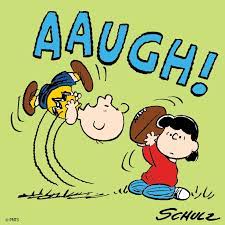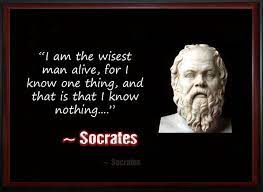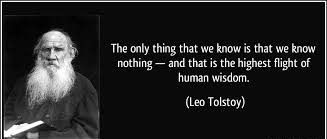You're So Gullible that . . .
Convictions are greater enemies of truth than are lies.
— Nietzsche
Charlie Brown is so gullible that despite his history being tricked by Lucy, he takes the bait each time.

We think of Charlie as gullible because he uncritically accepts as true what Lucy tells him. His recurring pattern of falling for Lucy's assurances illustrates why the trait of uncritically accepting the first or most salient representation of reality is so ruinous: Namely that experience does not protect the gullible from being deceived the next time.
Your history shows that you don't need a meany like Lucy to trick you, you are quite capable of deceiving yourself. The optical illusions in this video give you an opportunity to observe yourself being taken in —not by an external scoundrel — but by your own eyes:
(best viewed in full screen mode)
Your experience of these optical illusions is offered as a metaphor for how you make sense of any event that happens. Take advantage of this opportunity to observe experiential phenomena from the third-person perspective of a dispassionate researcher as your nervous system interprets what your eyes see. Observing yourself being taken in by the illusions can give you some insight into why you repeatedly follow a path that you have already discovered leads you to unwanted outcomes.
- In both cases, your uncritical interpretation of what you see is wrong. But discovering that fact may not protect you against similar misinterpretations in the future. The next time you see these illusions, you will "see" black dots when they don't exist (first image) and not see them when they do exist (second image).
- Now that you see how vulnerable you are to misinterpretation, you'd have to be pretty gullible to believe that you see things as they really are, let alone that your particular interpretation of the complex and ambiguous social situations you encounter is the correct one.

There are many possible interpretations of the events that happen. Judging the one that first appears in your consciousness [or the most salient interpretation] as the correct one is the hallmark of gullibility. Socrates considered these premature judgments to be the universal source of our errors and unhappiness.
Gullibility Versus Skepticism
To protect yourself against the unwanted outcomes that result from misinterpreting the things that happen, consider Skepticism—the ancient Greek philosophy that advocated the suspension of judgment (as distinguished from the term's common usage as a label for the cynical rejection of new ideas).

Dogmatism— being so certain that your interpretation is correct that you are blind to contradictory information—is the spawn of fertilizing arrogance with gullibility. If you really want to discover what is true, you have to do your best to reduce or eliminate your dogmas, preconceptions, and biases so you can be open to whatever information becomes available.
How To Be A Skeptic
To fully enjoy novels, movies, and other forms of creative fiction, we are advised to suspend our disbelief. Modern neuroscience makes clear that our perceptions are the creations of our nervous systems. To fully enjoy our lives we would do well to embrace the principles of the ancient Skeptics and suspend our belief.
We don't see the world as it really is; what we see is an interpretation created by our nervous system of the data transmitted by the optic nerve. The lovely image below is neither a pretty girl nor birds tending a nest. It is an aggregate of pixels of varying shades artistically arranged by the clever and talented Ocatavio Ocampo.

Imagine an argument between an observer who insists that this is a picture of a girl and another equally adamant observer who maintains that it's a picture of birds tending a nest, and they want you to settle the argument. You can't use validity to choose the winner. You'll have to find another way to settle the matter. Each thinks they already know the truth, so there is nothing you can do that will lead to change. Their dogmatism keeps them stuck in their current beliefs without any hope of developing a more complete understanding of the world in which they live.
Nietzsche maintains that all perceptions and ideations arise from how things look from the observer's perspective. There is no "most valid" perspective and nobody has immaculate perception (although everybody assumes they do). The conviction that your interpretation of an event is more valid than any other is no less absurd than insisting that "birds tending a nest" is the valid interpretation of the picture.
In fact, the image on your screen is composed of pixels. There are many possible interpretations of this arrangement of pixels. The particular interpretation of any given observer is no more than his or her creation. Only a specification of the position and shade of each pixel would quaify as valid and complete. Since we cannot select among plausible interpretations on the basis of truth, Nietzsche advises that you make your selection on the basis of its utility.
What is the Truth about You?
- Are you good or bad?
- Are you loveable or unlovable?
- Are you a success or a failure?
- Are you a pathetic victim or a heroic survivor?
The answers you choose have self-confirmatory consequences. Take a few moments to consider how "acting as if" you are unlovable would influence your intimate relationships. The consequence of regarding a fictional premise as true is that it become true—a self-fulfilling prophecy.
When a premise has a handicapping effect on your performance, accepting it as true is counter to your interests. Your personal research has revealed the premise that is responsible for your recurring pattern of unwanted outcomes. This premise is a fiction that you made up! Dont be so gullible that you aecept it just because it appears in your consciousness. Socrates wouldn't buy into it and neither should you.
Instead of seeing the world through the most salient lens, use a lens with greater utility. The premise you have been using to interpret the things that happen is just one of many world views that are at least as plausable as the one you have been using. Many of these alternatives would be less handicapping and some may even be performance enhancing.
Abandon the path of least resistance
Follow the path of greatest advantage!
Now that your personal research has revealed the premise that causes you to repeatedly follow a path that leads to unwanted outcomes, you can apply the wisdom of ancient thinkers and modern cognitive scientists to follow a more advantageous path:
- You are no wiser than Socrates, and he knew nothing. We humans don't see things as they really are. Each of us has constructed our own reality on the basis of how things look from our particular perspective.
- Nietzsche points out that if you don't know what's true you can't use validity as the basis for selection. Instead, he advises that you use utility as your selection criterion.
- Premises, such as "I am [not] a good person" determine how you act, because they are the lenses that influence how you make sense of the things that happen.
- Your research has revealed the premise responsible for your recurring pattern of unwanted outcomes; it is your creation. You can select a select a premise that is at least as plausable but has a more advantageous [or at least a less handicapping] influence over how you act during high-risk situations.
Suggestion refers to influencing how someone reacts by suggesting a particular premise is true. Seeing things through the lens of the suggested premise is the cause of your recurring pattern of unwanted outcomes and changing the suggestion can be the solution.
The Skeptical Solution to Bad Dogma > >
